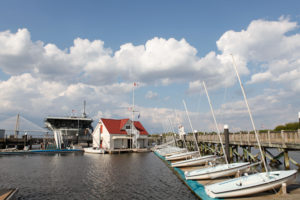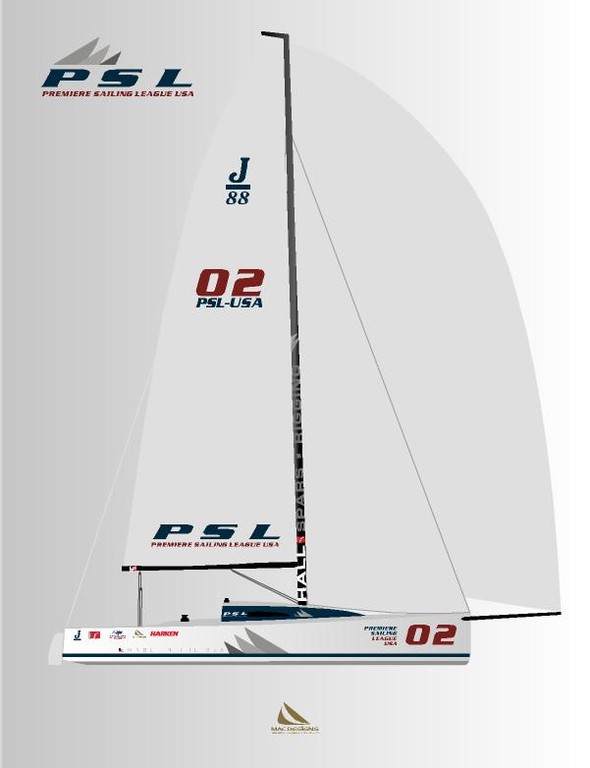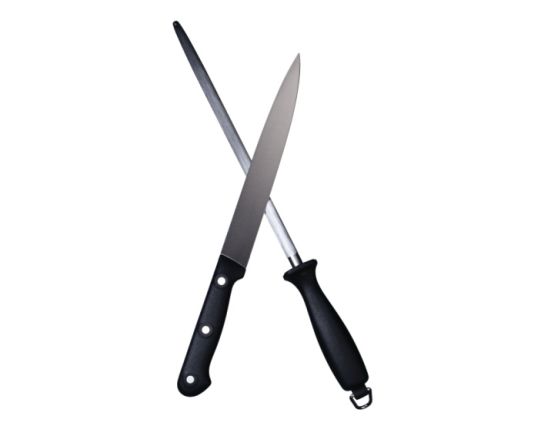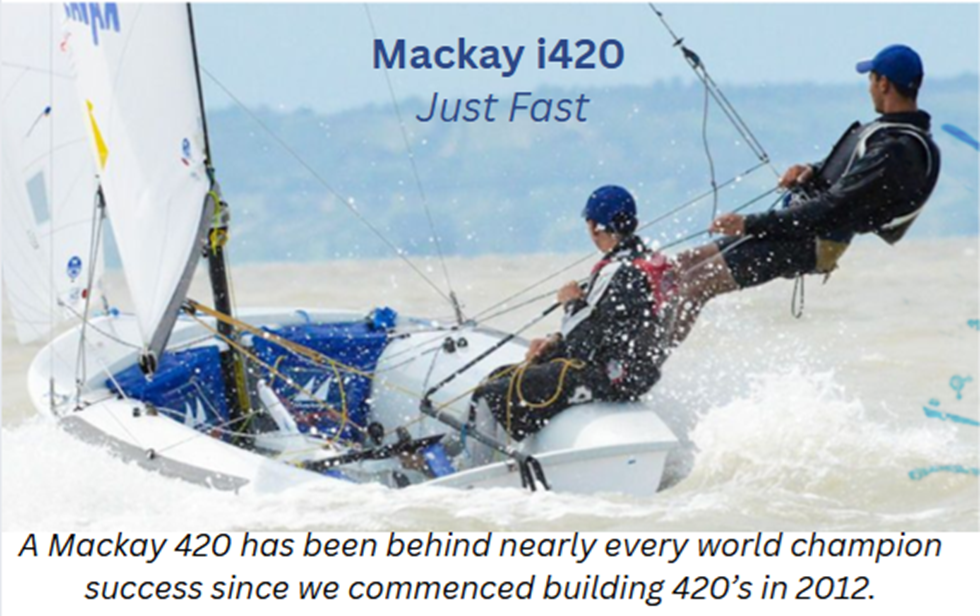PART I: SAILBOAT RACING IS A MANAGEMENT EXERCISE
Annapolis, MD (December 16, 2015) – By Airwaves Writer Joe Cooper
Editor’s Note: This is the first in a series of articles, taking cues from successful business management principles, on how to manage a sailing program. Enjoy, and stay tuned for Part Two.
Any group of humans trying to accomplish something needs to work together. Unless you are sailing a Finn, Laser or similar single-handed boat, (and yes these boats do need a team at the elite levels although of a slightly different make up) you will need to build the crew, a team of souls who share your vision, your ideas, sensibilities and in general who share your idea of how sailing and racing should be conducted.
I have been fortunate to have sailed on boats and been in programs that were under the command of great leaders. Learning from these people I have picked up a few ideas on how to assemble a collection of individuals into teams; and in a few cases, really very successful teams.
COMMON GOALS
In November 2014 I was contracted to coach a fellow who wanted to bring his boat and pretty novice crew to Block Island Race Week 2015. He and I spoke a few of times and I became acquainted with his requirements and expectations. In December I was invited to join him and his team at his house for Christmas cocktails. The idea being to introduce me to the team, to meet his crew and to outline how we were going to accomplish his goal. The GOAL, your goal if you are the owner or instigator, is the first, and a mighty important element in building a team. You need to have a very clear idea of what it is you want to accomplish with your sailing and your team. This clarity of purpose is the sailing version of the Mission Statement” one hears so much about today.
WHAT are you wishing to do? Win the XYZ class nationals? Do you want to improve or to win or place in your regions prominent races? Do you want to improve your position in the Wednesday night series? Is it a long time dream to enter and finish a Bermuda Race? OR do you to simply have a fun time with some mates? It matters not what the goal is, BUT it needs to be articulated. Clarify in your mind what you want to do, what you want to feel when you are driving home after sailing. Write it down and pin it up on the bulkhead in the cabin. If you are in this for the long haul, break it down in to a discrete timeline: Individual races, regattas or place improvements over a number of years or however it makes sense for you
SAILBOAT RACING IS A MANAGEMENT EXERCISE
We have probably all been out racing somewhere and heard a skipper screaming at the crew or an individual crewmember about something. Apart from being embarrassing it is absolutely not productive. In the management of the boat, it is the skipper who has a large share of the “blame” for the crewmember not doing what is needed. Citing this common vignette was my opening remark to the prospective crewmembers assembled in my client’s kitchen after he called them to order.
The first actual “learning” statement I made to my client’s crew with respect to success in sailboat racing was: “Sailboat racing is a management exercise.”
That was all I said in the kitchen, full of perhaps 15-18 adults and two high school lads, all with a work history. There was a modest span of sailing skill and experience although in a few cases, none. My client owned a modest size business and some of the crew were his family and mates who worked with and for him. By definition there was some management experience in the group. When I had finished the sentence I shut up.
The kitchen was dead quiet. The silence lasted for what seemed like a minute but was probably 15 seconds. The silence was finally broken by my client’s, face lighting up into a broad smile and exclaiming, “Oh, I get it, this will be easy”. My job was made a lot easier from there on and the rest our BIRW 15 goals were a lot easier to meet having this shared concept to weave into all the instruction. Once the boat was in the water the practice was made much easier too. The rest of the evening was discussing the mechanics and best ways to develop the team along these lines. I remarked to the crew that there are various departments of a boat and compared them to the departments in a business.
In business for instance one has the line staff, supervisors, middle and upper management, sales, marketing, accounting, personnel and so on. If one considers a sailing boat going off to race, I think in terms of five departments.
Regardless of the size of the boat, from a J-24 to Comanche, the departments remain the same they may just have more team members in each department and maneuvers take longer.
- Senior management
Aka: The afterguard: This includes, the navigator, tactician, strategist and the helmsman*
*(Tacking back for a moment to the screaming driver noted above, my next statement made a few minutes later was: “steering is just another job on the boat.” That statement of course brought another round of silence and I will elaborate on this statement in a minute.) - Sail Trimmers
This of course encompasses the crew responsible for control over the shape and trim of the sails. - Grinders/middle of the boat
The horsepower. - Pit
Halyards and related activities - Bow
This does not need defining now does it? - Non –sailing departments
And there are departments too that are not sailing specific. The operation of a sailing boat requires the operation and understanding of non-sailing equipment and skills like machinery, electronics and electrical systems, navigation safety and deck rigging and sails to pick a few of the more common areas. Encourage your crew to pick a department and to “take command” of it. This principal has to be front end loaded in that you need to have a clear plan and articulate that plan with respect to what you want the members of each department to do and be responsible for.
Like the original Mission Statement for the boat and the owner’s wishes, this vision should be written down and discussed at crew gatherings. If this method of division of labor is used, two things happen. The leader of the program, owner skipper usually does not have to do it all—-Nothing like waiting for the skipper to get the boat off the dock while he finishes checking the oil or entering in way points…
AND the members of each department are empowered to “own” their departments. When they get to the boat, there is a specific task list they should check off, rather than everyone standing around and everyone trying to do everything, or not doing anything. Almost everyone I have ever met around boats will jump into any task as soon as it is asked of them. Identifying the divisions just formalizes this individual effort.
STEERING IS JUST ANOTHER JOB ON THE BOAT
After sailing on a lot of different programs over the years the number of times I have seen “the owner” wanting to steer AND who also wants to do all the other jobs in his department, and sometimes other departments too (explaining how to rig up the kite comes to mind) is the rule not the exception. To me this makes no sense.
Steering is, to my mind, a pretty particular skill requiring the full attention of the driver ALL the time. Sure, in one design sailing and especially single-handed boats you must do it all. But this is a bit like starting your own business: You are all departments all the time and sometimes all of them all at once. In solo dinghies though all the boats are carrying the same handicap as it were. But on boats with multiple crewmembers the job of steering consumes the driver’s attention (hopefully) 100% of the time. To ask the guy or girl driving to take on other tasks, crew boss, tactics navigation and so on, is simply not fast if nothing else.
Certainly there are programs where the guy or girl driving does a lot more than just steer. On the other hand two of the most successful Corinthian programs I have seen the owner has someone else drive.
LEADERSHIP
In business and sometimes in sailing, we hear if we listen for it, the term Leadership pretty regularly. I have a selection of books on leadership and a favorite is one written by a retired Commander in the US Navy. In the book, he relates his experiences after being posted to a new ship where he could not believe the difficulty he had getting things done. He looked into this of course and found out his predecessor had been a micro-management fiend. The ships crew, some 280 souls became too scared of doing anything for fear of doing it wrong. Thus the entire ship basically ground to a halt, the crew being scared to do anything unless the captain signed off on it. A moment’s reflection will tell you what a failure that would be anywhere, never mind a fighting ship. Not surprisingly the ship had appalling numbers under the metrics by which the US Navy measures the performance of their ships and crews. The new captain’s approach was totally different from the previous one. He totally overhauled the ship’s operating culture, largely by empowering the crew to ‘own’ their tasks, jobs, divisions and teams. This made the ships a team function as it should AND raised the ships metrics off the dial, by the liberal use of two words also found in business.
DELEGATION AND OWNERSHIP
Delegation is essential of the business (or the team) to develop, grow and become successful. When you build your business you are building a team to help you. As your business grows you might first hire a book- keeper, then a sales person, then someone to help take the load in the manufacturing or coding and so on. You must delegate some of the load otherwise you will not grow the business. This principal is the same in yacht racing. Even say on a J-24, the skipper must steer, to their best ability, 100% of the time. Because the mainsheet trimmer need not be adjusting the trim 100% of the time, the driver (invariably the owner) can delegate to the mainsheet trimmer some responsibility to help with tactics.
Ownership means in short, that the people who best know how to do a job or task are the people actually doing it. It makes no sense for the CEO to come down and try and show a line staff person how to do that persons job. Even in the circumstances where the CEO does in fact know the task, it is not a good use of the skills the person has that got them to the CEO Suite in the first place. In sailboat racing the guy steering is last person who ought to be instructing the bowman in how to do their job and ESPECIALLY 5 boat lengths out….
Part Two will discuss team building & dividing up the workload and particular tasks when the boat is not sailing.
Check out PART II




 Obviously creating something awesome and totally different doesn’t come without its challenges, the greatest of which, being the physical organization of its members. Prior to Greg’s arrival as the Director of Sailing, the program had a somewhat poorly attended alumni weekend, which changed in dates from year to year and had no real consistency in terms of attendees. Viewing this as a great opportunity to bring graduates together in an effort to showcase the current team and raise funds, Greg sought to revamp the annual alumni celebration. With the help of some recent grads, including the Commodore, the program enjoyed its greatest attended Alumni Weekend and regatta in history in 2013 by communicating with grads from several generations and agreeing on a time of year that would fit into the majority’s calendar. The following year, we snowballed on that enthusiasm with the announcement of the club and the election of officers, as well as the unveiling of a burgee and the launch of an official website. The Alumni Weekend now serves as the annual Alumni Regatta, hosting several get-togethers in order to collect annual dues and provide alumni with exposure to the current team members.
Obviously creating something awesome and totally different doesn’t come without its challenges, the greatest of which, being the physical organization of its members. Prior to Greg’s arrival as the Director of Sailing, the program had a somewhat poorly attended alumni weekend, which changed in dates from year to year and had no real consistency in terms of attendees. Viewing this as a great opportunity to bring graduates together in an effort to showcase the current team and raise funds, Greg sought to revamp the annual alumni celebration. With the help of some recent grads, including the Commodore, the program enjoyed its greatest attended Alumni Weekend and regatta in history in 2013 by communicating with grads from several generations and agreeing on a time of year that would fit into the majority’s calendar. The following year, we snowballed on that enthusiasm with the announcement of the club and the election of officers, as well as the unveiling of a burgee and the launch of an official website. The Alumni Weekend now serves as the annual Alumni Regatta, hosting several get-togethers in order to collect annual dues and provide alumni with exposure to the current team members.
 Special “Made in the USA” editions of the J/70 and J/88 will be used in the Premiere Sailing League series.
Special “Made in the USA” editions of the J/70 and J/88 will be used in the Premiere Sailing League series.

 The
The 
 In recent years, Sippican Harbor has become completely devoted to yachting activities, with no commercial shipping. It is one of the best yachting harbors on the east coast. Today, Marion is a residential community with a winter population of about 5200, swelling to 8000 in the Summer. The buildings of
In recent years, Sippican Harbor has become completely devoted to yachting activities, with no commercial shipping. It is one of the best yachting harbors on the east coast. Today, Marion is a residential community with a winter population of about 5200, swelling to 8000 in the Summer. The buildings of 